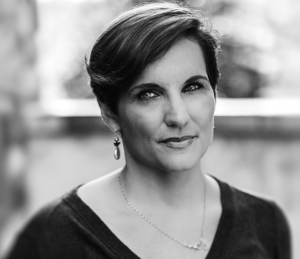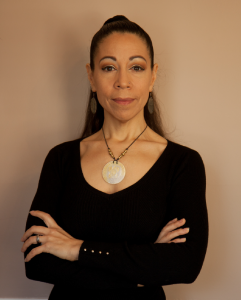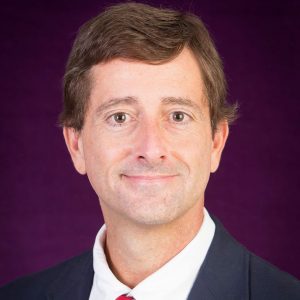UNC Asheville brings indigenous writers, performers and experts from a variety of fields to campus to enrich our Indigenous Studies curriculum and provide opportunities for students and the greater community to better understand indigenous cultures, their history and current work. Find key speakers and past events highlighted below:
Annette Saunooke Clapsaddle
March 31, 2021

Annette Saunooke Clapsaddle discussed her novel, Even as We Breath. Clapsaddle, the first enrolled member of the Eastern Band of Cherokee Indians (EBCI) to publish a novel, holds degrees from Yale University and the College of William and Mary. Her first novel manuscript, Going to Water, is winner of The Morning Star Award for Creative Writing from the Native American Literature Symposium (2012) and a finalist for the PEN/Bellwether Prize for Socially Engaged Fiction (2014). After serving as executive director of the Cherokee Preservation Foundation, Clapsaddle returned to teaching English and Cherokee studies at Swain County High School.
Cherokee Cultural Week
Nov. 13-15, 2019
UNC Asheville celebrated Cherokee Cultural Week with special activities, including informational displays, a concert by River Kane and Banished DG, and a keynote address by Principal Chief Richard G. Sneed of the Eastern Band of Cherokee Indians entitled History and Culture through Storytelling. Cherokee Cultural Week was presented by the university’s Native American Student Association and the Key Center for Community Engaged Learning.
Sovereign Entrepreneurs: Cherokee Small Business Owners and the Making of Economic Sovereignty
Oct. 10, 2019

Visiting scholar Courtney Lewis gave free public talk, Sovereign Entrepreneurs: Cherokee Small Business Owners and the Making of Economic Sovereignity, on small businesses located on the Qualla Boundary of the Eastern Band of Cherokee Indians of North Carolina. Her research highlights the historical presence of small businesses and entrepreneurs on reservations and answers the questions of how the boundaries that Native Nations work within (land, legal, representational) impact these small businesses; how these boundaries are then transformed by these businesses (e.g. impacts on issues of sovereignty); and how these transformations can truly alter the landscape of a Native Nation in both figuratively and literally.
Courtney Lewis is a tenure-track assistant professor in the Anthropology Department and the Institute for Southern Studies at the University of South Carolina. Her current work is in economic development for native nations in the U.S. and, consequently, issues of sovereignty related to and based upon the necessity of economic sustainability and stability.
Farm-to-Table Dinner on the Quad
Sept. 23, 2019
UNC Asheville’s fifth annual Farm-to-Table Dinner on the Quad was guest-hosted by Mko’Mosé (Andrew Judge), with the theme of “Home Sweet Home,” and a menu featuring wild and indigenous foods.
Mko’Mosé is a professor and coordinator of Indigenous Studies at Conestoga College Institute of Technology and Advanced Learning in Ontario, Canada specializing in traditional indigenous knowledge to support “the conscious awakening of his students and himself.” Judge is an initiated Mayan day-count keeper and regularly participates in the ancient ceremonial practices of his Anishinaabe ancestors.
Stories of Desegregation from the Snowbird Day School 1935-1965
April 15, 2019
As part of UNC Asheville commemoration of the 65th anniversary of the U.S. Supreme Court Brown vs. Board of Education decision that struck down school segregation laws, Assistant Professor Trey Adcock, director of UNC Asheville’s Indian and Indigenous Studies Program, shared the history of the Snowbird Day School.
Snowbird Day School was attended by hundreds of children who were members of the Eastern Band of Cherokee Indians (EBCI). Adcock has led a project combining oral histories, and photo and document collection to shed light on the different experiences at the school which was founded by Quakers but later run by the Bureau of Indian Affairs. The project has been funded by the Whiting Foundation and EBCI.
Tribal Economics and the Eastern Band of Cherokee – Talk by Historian Christopher Arris Oakley of ECU
Sept. 25, 2018

Christopher Arris Oakley discussed his newly published book, New South Indians Tribal Economics and the Eastern Band of Cherokee in the Twentieth Century, which traces the economic development of the Eastern Band of Cherokee Indians throughout the 20th century to better contextualize the Cherokee Tribal Council’s decision to incorporate gaming into the EBCI’s economic strategy. In building his contextual framework, Oakley discusses the interdependent relationships forged by Cherokee Tribal Council members with various public and private entities in order to protect their land, manage their resources, and advance the well-being of their nation’s economy and community.
Christopher Arris Oakley is chair and associate professor in the Department of History at East Carolina University. He specializes in North Carolina and Native American history. He also is the author of Keeping the Circle: American Indian Identity in Eastern North Carolina, 1885–2004, and he is coauthor, with Theda Perdue, of Native Carolinians: The Indians of North Carolina. He received his Ph.D. in history from the University of Tennessee.
Joy Harjo
April 12, 2018

Author Joy Harjo gave a reading as part of the Department of English Visiting Writer Series and the university’s American Indian and Indigenous Studies Series. Harjo is a recording artist, the author of ten books of poetry, a memoir, Crazy Brave, and the coming-of-age book, For a Girl Becoming. Her many honors include a Guggenheim Fellowship and the William Carlos Williams Award from the Poetry Society of America. She is a native of Oklahoma and member of the Mvskoke Nation, and has also won the Lifetime Achievement Award from the Native Writers Circle of the Americas. Her most recent book of poems, Conflict Resolution for Holy Beings, takes readers from early history and the Trail of Tears through the everyday joys and struggles of modern life.
Joy Harjo also received an honorary degree from UNC Asheville in spring 2021.
